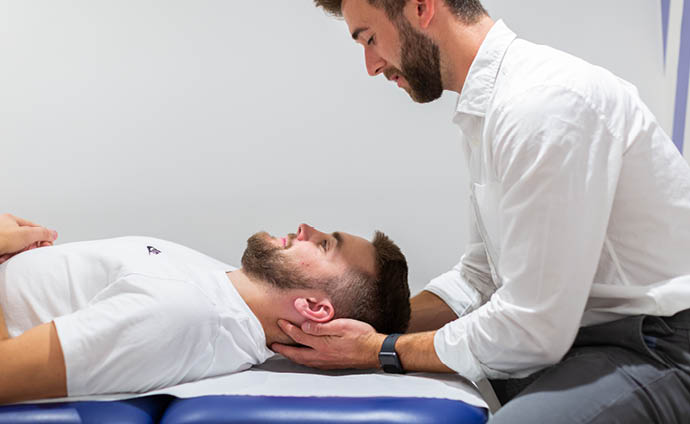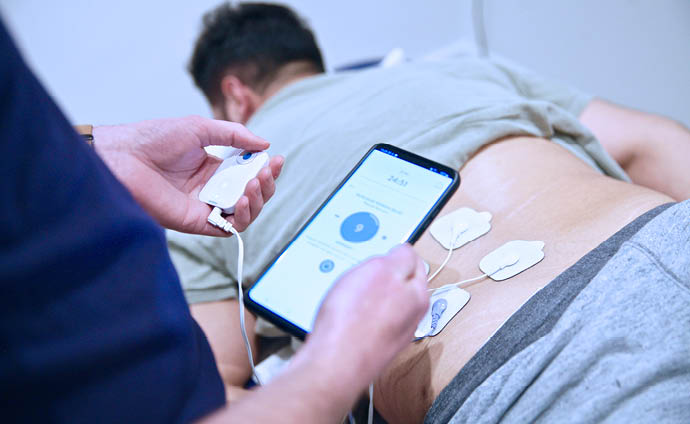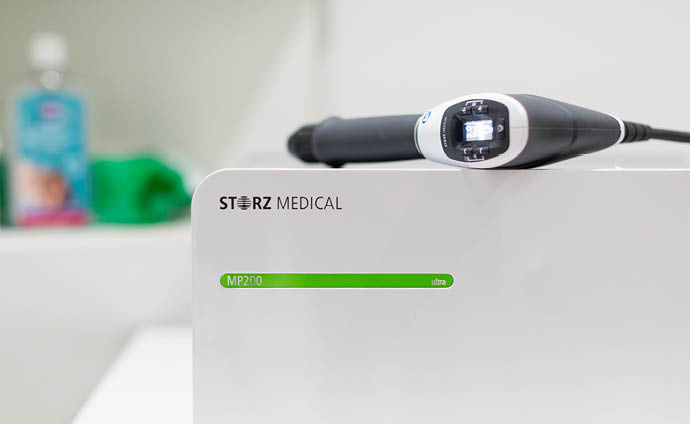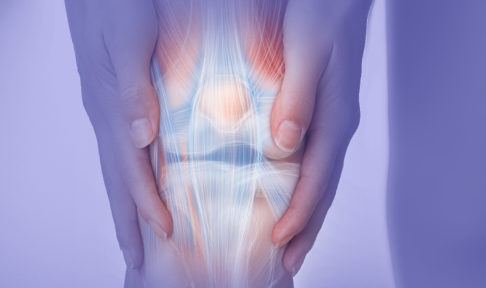As anyone who has suffered from neck pain knows, it’s a debilitating condition. From sitting, exercising, working and sleeping, neck pain can negatively impact almost every aspect of your life when left untreated.
We commonly hear from our patients that neck pain is ‘just something they have to live with’, but what many don’t understand is that there are several common neck issues that we treat everyday, with great success. Here are some of the top ones that present in our London clinic and some of the ways we help our patients get back to living a neck pain-free life!
1. Cervical Spondylosis
Cervical Spondylosis is one of the most common neck issues we see in our patients. It’s most commonly found in older patients, or people with a job that puts a lot of strain on their neck, but it can be caused by genetics too.
The cervical spine encompasses your top seven vertebrae and Cervical Spondylosis refers to a wide range of degenerative issues that arise in this area, damage to the ligaments or vertebrae themselves.
Because it’s a degenerative condition, it is more commonly found in patients over the age of 50, with many people experiencing the degeneration but feeling no symptoms. However, some people will experience pain, stiffness, spasms or tingling and may even notice referred pain in the form of headaches, shoulder or arm pain.
2. Disc issues
Slipped discs (also known as herniated, bulging or prolapsed discs) can occur in your cervical spine when the softer, inner part of your disc is damaged or weak and protrudes through the outer section of your disc. This can cause pain or numbness, particularly if the disc presses on any of your nearby spinal nerves. However it is more common for acute pain to be felt when a slipped disc occurs further down your spine towards your lower back — in some cases with a slipped disc in your neck you may not feel much pain at all.

3. Joint inflammation
While joint inflammation in the neck can be caused by trauma or impact from an accident, more often than not it’s caused slowly and insidiously over time from poor posture.
Poor neck posture normally refers to how your head is positioned. If your head naturally tilts forward when you’re sitting or doing repetitive movements, it can cause your cervical spine to stretch and your neck joints will then need to support an increased amount of weight. Your shoulders can also become hunched, meaning your neck and shoulder muscles will be more likely to become tight and painful, adding to the joint pain.
4. Spinal stenosis
Spinal stenosis is a condition that occurs when the bony openings of your spine narrow and contract.
There are two main types of stenosis: the first is called foraminal or lateral stenosis, which happens when the bony openings contract so much that they compress or cause inflammation of your spinal nerves. The second is called central canal stenosis, which involves compression or inflammation of the spinal cord itself.
What both types have in common is that either the spinal nerve or the spinal cord has less space, causing pain, a loss of sensation or even weakness in your arms. While you are more likely to suffer from one or the other, it is possible to have both foraminal and central canal stenosis together.
So, how does a physio diagnose and treat these common neck issues?

No matter what your condition, all our diagnoses are dependent on the results of a thorough assessment in your first appointment. Once we have determined the cause of your neck issues, we will devise a personalised treatment plan for you, which may include a combination of the following treatments.
- TENS therapy uses electrical pulses to stimulate your neck and release endorphins and other substances, which block pain signals in the brain and relaxes tight muscles.
- McKenzie therapy is useful in diagnosing the cause of neck pain but also helps improve your spinal mobility and posture. Spectrum’s Ant Brightwell is one of the only few registered McKenzie therapists in London, and will often include McKenzie therapy in patients’ treatment plans.

- Mobilisations are an excellent way of loosening tight neck joints, through a small, manual movement.
- Dry needling is a clinically-proven technique for decreasing tightness and reducing tension by altering the length and makeup of your muscles.
- GameReady is an excellent treatment option if you are suffering from referred pain in your shoulder with a root cause in your neck. It works by pumping ice cold water through a sleeve wrapped around your shoulder, while at the same time providing compression, which is an excellent way of managing pain and speeding up the healing process.
Are you suffering from neck pain? It may be one of these common issues. The only way to know for sure is to book a time with one of our physios for a professional assessment.



